|
The title of this piece is both a deception and a truth. Disabled people like me are often the recipients of benevolece in art and culture. At a time of risk in the arts, as we all struggle towards some kind of recovery and sustainable presence, here is a 'guide' to being better than benevolent. Vici Wreford-Sinnott A version of this article was published by TheatreArtLife a global platform for all things theatre thinking. I’ve now been living in isolation for four months due to the global pandemic. Quite an experience fraught with both challenges and opportunities. Opportunities for meaningful change if only the right voices can be heard in the right places. Economic pressures around the world have meant that many governments are loosening their lockdowns. That has happened quite rapidly in the UK where I am based, and where really, we’ve had a succession of vague and mixed messages about how to keep each other safe. Frustrated by isolation and restricted lives, people are hungry to be ‘free’ and ‘back to normal’. And so now, we see lots of people taking big risks with their own health and lives, and those of others. I’m scared. I am a disabled woman: a lifelong activist, theatre director and playwright, screenwriter, punk (as in rock), and a reasonably confident person but I don’t mind admitting, I am scared. If I get this, Covid 19, I’m gone. I’m gone, mainly because I am a disabled woman and I won’t get the same treatment non-disabled people do. I won’t get the same opportunity to fight it and live. Neo-liberal societies don’t value the lives and contributions of disabled people. We’re viewed as ‘less than’, and certain powerful ideologues would rather have a ‘cleaner species’. Scary stuff and a bit confusing, especially as most members of the human race are going to become disabled as we age. It’s a natural part of life. What does all of this have to do with involving disabled people in the performing arts then? That’s what I’m writing about about: A Guide to Involving Disabled People in the Performing Arts. First of all – performing arts? Isn’t that just a bit of frivolous fun? What possible difference can that make to peoples’ lives? And second of all, on reading that this was going to be a ‘guide’, you might expect me to write a quick to-do list of accessibility tips and tricks. Which actually I can do at the drop of a hat. It’s as easy as a click of the fingers, listing items 1, 2, 3, 4, 5, there you go, practical steps – done and dusted. Only if we think back to my first paragraphs, and the backdrop I’m writing this against, in the UK two-thirds of people who have died in the pandemic so far, have been disabled people, and disabled women are 11 times more likely to die based on current statistics. The narrative created around ‘vulnerability’ and ‘underlying conditions’, has made it sound as if our deaths are inevitable. Expected and accepted. Yes, disabled people may be more susceptible to the impact of the virus, but the greater threat is that we are triaged and our care decided before we even get ill. Frailty scores are embedded in health professional training even if they are not spoken of as such. We’re not a priority. The ‘who will get a ventilator discussion…’ This means that all life is not perceived as equal. And it’s a story that has been repeated throughout history, from the Romans putting disabled children out on the hillsides to perish as they were deemed useless, through to compulsory or coercive sterilization programmes of disabled women across the world, through to not bothering to count the deaths of learning disabled people due to covid. This is why it is important, critical in my opinion, to involve disabled people in performing arts, in theatre, in TV or film is actually a vital means of staying alive. It’s where we have visibility in culture and it’s where we get to tell our stories. Without that we are completely invisible. More at risk. The civil rights movements of disabled people across the world have always been about our status, our value and worth as human citizens. We fight to be seen as equal, and treated as equal, in society’s systems and structures. Our low status is embedded in our national psyches because of historical and cultural misrepresentation - shown as deficient, less than, less able, tragic, useless. Dominant culture, the thing that preserves the status quo no matter how ugly and unequal it is, tells the stories of disabled people in film, TV and theatre as great tragedies, which are to be overcome or destined to have desperately sad endings. We’re the butt of jokes or we’re there as the foil to a main protagonist’s story. Dominant culture just hasn’t been interested in re-telling or challenging these stories with disabled people at the helm. But this makes so little sense – again if most of us will become disabled as we age, and if as much as 20-25% of the population consists of disabled people (as it does where I live), why do we repeat the same old stereotypes, the same old narratives, reinforce our ill-informed historical beliefs and terrify each other that it’s not a life worth living to be disabled? The stories dominant culture tells are never, ever led by disabled people. The producers, directors, writers, designers and actors in production companies, in broadcasting organisations and in our theatre venues are rarely disabled people. Of course, we have fought for space and set up companies ourselves but due to the societal encoding of disability as deficient, we are under-resourced and given lesser spaces. It’s rarely high-profile work. Arguments are put forward that it’s because ‘you’re not famous – they need big names’. Well, we’ll never be big names if we aren’t involved, included and given leadership and decision-making roles. It’s not about being a big name for most of us though. It’s about moving towards a point where statistically we are represented more proportionately to the percentage of society we make up. Recent diversity research undertaken by Arts Council England revealed disgraceful statistics about levels of diversity in employment in English arts. 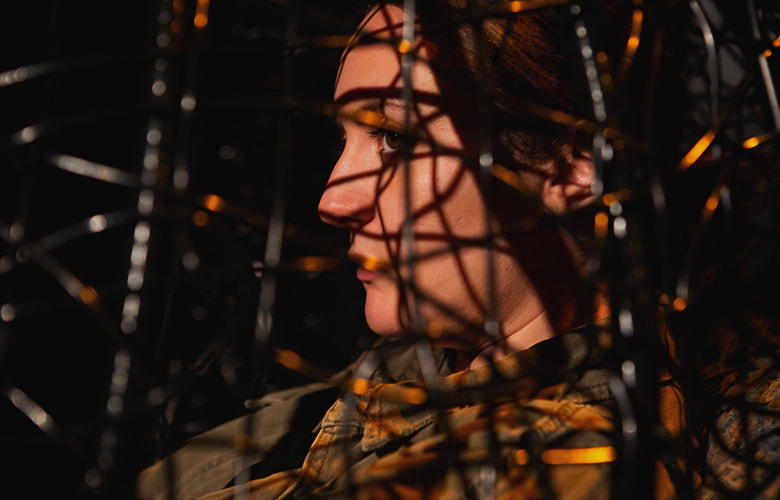 Image description - a close up on the side profile of a young woman's face taken through the wire patterns of a swing garden chair. She has dark hair and brown eyes and is looking thoughtful but ready for action if needed. It is moody and atmospheric. The actor is Philippa Cole playing Rat in Another England by Vici Wreford-Sinnott. Photo Credit Kevin Howard. Involving disabled people in the performing arts has to begin by acknowledging the historical misrepresentation and stereotyping that is present in much of the canons of theatre and film. We can’t keep telling those old stories in those old ways. And we have to address institutional and structural ableism – the discrimination and exclusion of disabled people at all levels in the arts. We’re not novelties and curiosities for non-disabled actors to ‘extend their range’ and contort their bodies into Oscar winning roles. I’ve been talking a lot about ‘crip-taking’ lately. Another film has come out, American I think, and launching in Europe soon, which has cast non-disabled people as disabled characters. Cultural theft. Taking our voices, taking our stories and taking our roles. It has to stop. Surrounded by phrases like ‘heart-warming, inspiring and special’ – we are not your entertainment! It ultimately means we die first in pandemics. Please join the dots and see the cultural journey our thinking as societies takes. What it reinforces and perpetuates. Where it ends up. Disabled people know very well the non-disabled puffed-up-chested affrontery at suggestions that non-disabled people should not impersonate and mimic us. Cries of ‘surely that is precisely what acting is where one can play anyone when one is acting’, or, ‘political correctness gone mad’ and ‘next we’ll be saying that only boxers can play boxers and only teachers can play teachers’. It’s not about that at all. It’s about the baggage you didn’t know you had, already telling you that our lives are only worthy of impersonating and making a novelty or a tragedy of. That work, those films and theatre shows where non-disabled people crip-take, do nothing to change our status, to challenge the stereotypes about us, put us any higher up anyone’s list of priorities, and or reveal anything of our cultural richness. There are things about us you don’t even know, and if you don’t know them, the cultural landscape is a lie. We are not telling or reflecting the truth about who we are. We are hiding it. And please don’t tell me that there are no disabled producers, directors, writers or actors out there. I’ve been doing this for thirty years and have worked with some of the most talented, insightful, innovative, trailblazers in our world who will one day achieve recognition. Dominant culture just doesn’t know where to look – or perhaps it does, and then chooses to look the other way. Why is that? So, back to the questions. Why do we involve disabled people in the arts? Because we have amazing stories to tell, and we have to stop cultural theft, stop crip-taking. It perpetuates inequality. And, how do we involve disabled artists in performing arts? We involve disabled artists at every level, from the very beginning. Look, okay, here’s the access stuff, the list, the 1, 2, 3, 4, 5. The access stuff really is the basics, we shouldn’t have to tell you about it as it’s been legislation for decades, and it is constant emotional unpaid labour to us to be educators. As it happens, we can tell ya a lot of the practical stuff in our sleep and do a quick budget projection on the side. Lift and level access, BSL interpreters, audio description, neurodivergent accessibility and relaxed environments, regular breaks, adapt rehearsal rooms and rehearsal methods, stop holding workshops, auditions and rehearsals and training up or down flights of stairs, ask us what our access requirements are, remember we’re not frail or going to cry at our own misfortune. Remember that we know what we’re doing, we’re professionals. We love sex and Elvis and whisky and cake just as much as you do. We are producers, directors, writers and actors. We are cultural leaders already, we are actors already – but because of society’s ‘less than’ view of us we don’t get invested in. And no thank you, I don’t mean we want another meaningless training course or development initiative. We want tangibles, we want the work, but somehow things flip around and we always have to be ‘more than’ to get a shot. 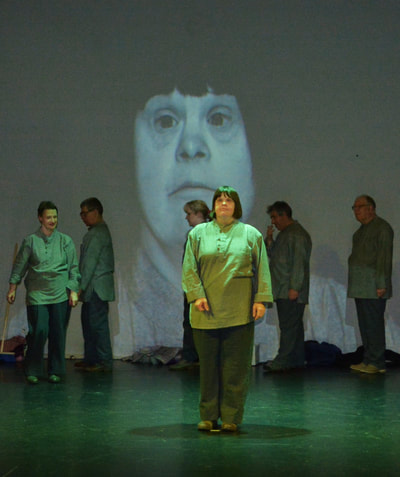 Image Description - one female learning disabled actor in drab grey uniform is in the foreground of the photograph, with seven other actors are behind her in a line in identical costumes. A giant image of the foregounded actor is projected on to a huge screen at the back of the stage. It is taken form the stage show called The Keepers by Full Circle Theatre Company. Over the years, when we were given spaces, sometimes we needed safe spaces to play to each other, and other times we needed studios and bigger stages. The danger was that we’d only end up inhabiting specific spaces which can be a double-edged sword. Niches and ghettos and silos. We have needed those spaces to support each other, to grow our craft but we also deserve the investment of greater scale. Not everything has to be on huge stages, intimate work is as important and impactful but it needs to be well resourced. I feel I’ve worked hard and earned a main stage large scale production but the argument will be ‘risk’. Not everything is about scale, but sometimes when you are under-represented it has to be factored in. And not in diluted mainstream work but in genuinely disabled-led work. I hope the clock of change is ticking playmates. To involve disabled people in the performing arts we have to remove the inaccessible people running inaccessible institutions, venues and companies with inaccessible attitudes. And we have to ask you to check your privilege, every day, and leave your ego at the door, whichever community you are from, as we seem to bottom of everyone’s priority list. See us, talk to us, involve us and invest in us. In isolation in lock down, I have had two small commissions to write two new plays and created an online digital short film. I am making slightly bigger digital piece which will be broadcast online in August with three amazing actors, examples of phenomenal British talent. I have been commissioned for two new pieces of work. I have commissioned three disabled artists through my company Little Cog and a disabled artist led collective I work with has just created 15 mini-commissions with disabled artists. There are a lot of us out here making fantastic work. Very little of this will get national arts coverage. It just doesn’t get the profile because the baggage attached to the word disabled. Thirty years, and barely anyone in theatre in my own region knows my name. Or if they do, they don’t talk to me. I’m proud to be a disabled person – to say so is a political act. An act of resistance and a disruption to the status quo. The disabled people who have done this before me paved the way for change in the way that myself and other activists are doing for future generations. One day the societal penny will drop – our work will be seen, valued and invested in. We see it, we are excited by it and we are a massive audience for genuine work where disabled people are leading and centre-stage. Get in touch and let’s talk this through. As I’ve now had a couple of weeks to process 12 of the most amazing, challenging, inspiring and fulfilling days of my career, I’ve put some words together. There are a lot of words, its probably more than one blog, but this experience has had a massive impact on me. Attending Directors Lab North and Luminato Festival in Toronto was an absolute privilege. DLN is an invaluable space to explore the complexities of a range of theatre practices from across communities from across the world. It is important to me to ensure that a disabled voice is at the table, making change happen, and that I’m both sharing and learning. Vici Wreford-Sinnott This is a previous blog from 2018 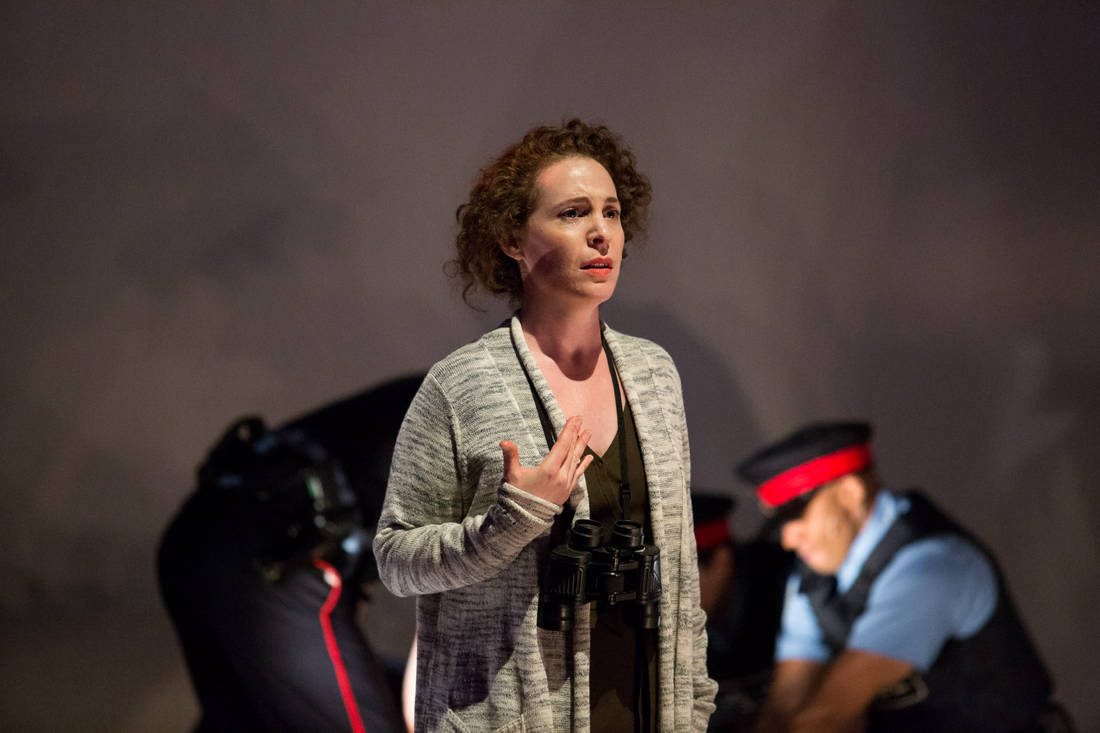 Image description - Sarah Kitz is in the foreground of the photo, deeply concerned, with binoculars around her neck. She is performing in Out The Window written by Liza Balkan and directed by Sarah Garton Stanley, at the Luminato Festival Toronto, 2018. In the background a number of police officers are crouched over a figure. Photo by Kyle Purcell. Out The Window by Liza Balkan, Directed by Sarah Garton Stanley. A Luminato Commission in partnership with the Drama Centre Toronto Land Acknowledgment
I want to support and honour the land acknowledgement of Tarragon Theatre, Toronto, acknowledging the sacred land on which we gathered and operated, as the traditional territory of the Huron-Wendat and Petun First Nations, The Seneca, the Mississaugas of the New Credit, and any other nations who cared for the land in its history. The territory is the subject of the Dish With One Spoon Wampum Belt Covenant, an agreement between the Haudenosaunee Confederacy and Confederacy of the Ojibwe and allied nations to peaceably share and care for the resources around the Great Lakes. Today, the meeting place of Toronto is still the home to many indigenous people from across Turtle Island and I was grateful to work in the community, on that territory. Context of My International Visit to Canada I’m not a natural navel gazer, nor do I boast about opportunities afforded me, but I genuinely have always dreamed of going to Canada. I’m choosing to record and archive my experience as a disabled practitioner, and aim to contribute to discourses around, a) the equal status of disabled citizens and any injustices I witness or experience, and b) the equal status of the autonomous voices and artistic contribution of disabled people on many levels, in varying ways, across culture. About 18 months ago, I decided that I wanted to explore some international possibilities, but then I didn’t even know opportunities like Directors Lab North in Toronto existed. Being selected to attend, in many ways, felt like I was risk-taking, with no other self-identifying disabled people attending, without a history of disabled people attending, to my knowledge, and not really appreciating the circumstances that both disabled and non-disabled artists in Canada and the US make their work – the systems and structures available to them. And in honesty, I wasn’t sure whether what I have to offer was of value in this new context. There is a cyclic experience I encounter, where, as an artist from a less represented community, with historically less opportunities open to us due to societal prejudices and systemic failings, we must take on the role of both artist and educator, of both creative and campaigner, of both diplomat and activist. In diversity terms, not to in any way to diminish anyone else’s experience of discrimination and oppression, disability, because of all the social and historical baggage attached to common perceptions, usually finds itself at the bottom of everyone’s priority list. It’s often so difficult to get past the word ‘disability’, so conflated is it with inability, illness and incapacity. As a direct result of this conflation, in my own experience, it feels like disability is the only ‘other’ which the mainstream feels it can, wittingly or unwittingly, legitimately continue to represent as ‘less than’. As I have said on many occasions, disabled artists are some of the most exciting and innovative people creating work today, as we challenge form, challenge content and absolutely challenge the dominant artistic status quo. And yet, often, due to the baggage, our work is perceived as ‘less than’ and you can see the shutters coming down once the word disability is introduced to artistic discussions. I remember chatting to a senior member of Arts Council staff about contemporary theatre in the UK, who literally glazed over once I mentioned that I work in disabled-led arts, took out his phone to check messages mid-conversation. Less than. I have been able to reflect that I am at a shifting point in my career as an artist and as a voice within disabled-led arts working towards artistic and cultural equality for our community. If I can speak out, and this is just for me, I have a responsibility to do so. And I am driven to make the best, most compelling, powerful, meaningful, relevant work that I can, with thoughtful and analytical practice. One of the most exciting elements of Directors Lab North and of the Toronto Luminato Theatre Festival (which, along with the British Council also supported our programme) was the theme of activism and what role activism has on the creative life of an artist. Right up my street. Invaluable. The Theme of Activism All 28 of us directors had answered a question on our application forms about whether it is necessary for the role of an artist to also be an activist, and if so, how do we do this effectively and theatrically without alienating an audience? We were all so different in many ways, those forms must have made for very interesting reading. These are matters I face daily in my practice – making sure the activism is in the form of excellent art, and discovering new ways to get audiences to both engage and invest in the work. It was such a luxury to see work at Luminato, to discuss it, to share practice, to meet guest speakers and practitioners and to explore different approaches. Specific discussion points which have stayed with me relate to questions about
I’ll blog separately about some of these discussions and the learning involved. In a hugely conflicted world, it is essential to speak out, to be accountable and to build bridges. Artists have an important role to play in the conversations about society, humanity and, in these difficult times, resistance. And also to be a community. It’s not enough for me to stand on the shoulders of the disability rights movement, to sit back and observe the world, take public funding and make out of context, status quo serving, socially apolitical, comfortable and privileged work. I’m also going to be really careful that my work does not conflate disability with illness and ability, and I will not perpetuate existing stereotypes and tropes that exist around disability. So my practice is careful, considered and challenges me. Cultural differences It became apparent immediately that there were cultural differences between US, Canada, European and UK participants that perhaps none of us had given much thought to in advance. And there were a variety of intersectional differences between all of us wherever we were from. It took a while to acclimatize to each other and to work out what we didn’t know about each other. It was both a huge and beautiful learning process. There were matters of communication – politeness versus enquiring questions, straight talking versus diplomacy, diversity versus mainstream, political versus apolitical, political versus entertainment, perceptions of construction of identity including gender, disability, LGBTQI, social class, race and age. All genuinely fascinating and the impressive thing was the level of genuine mutual respect amongst the group. The word ‘versus’ was removed from the discussion. We realized that all of the six UK based directors, not exclusively, were all mission led. We all make work for a specific purpose which is socially engaged. Other directors were perhaps led by a particular theory of practice, or a specific form, and others were jobbing directors, often working as unpaid assistant directors for the experience as an accepted part of the existing hierarchy. It was fascinating to see how our discussions unfolded and then also how are practice was shared and demonstrated. And we were able to have conversations about some of the fundamentals of a rehearsal room – do we do warm ups, how do we do them, why do we do them and also, how much table work do we do, if any, depending on our training and our approach to the process. We rarely get to spend time in other directors rehearsals so this was really interesting. I learned so much that I will continue to use. One of the biggest cultural differences was of course the role of indigenous artists activism, artistry and protection of the true history of indigenous people in Canada and their experiences at the hands of settlers. One of the guest directors who presented to us was the amazing Jill Carter, Assistant Professor, Centre for Drama, Centre for Indigenous Studies, University of Toronto. She talked with passion about the representation of indigenous women, and characters created by both non-indigenous people and indigenous artists. It was absolutely fascinating. I could happily have spent the whole day with her. We also got to see a production called bug by Yolanda Bonnell, a queer performer and playwright of Ojibwe and South Asian descent, hailing from the Fort William First Nation Indian Reserve in Thunder Bay, Ontario. The piece was haunting and challenging on many levels, with Bonnell playing many women, and weaving the creation story throughout. Bonnell was captivating as she moved from character to character with great skill and expertise. Though painful, the piece concluded with hope for future women and the safeguarding of the land. It was brilliant to be part of discussions involving such strong women. High Impact Work Two pieces of work had a really big impact on me, in quite different ways. I’d say both were politically urgent pieces – often where I position my own work – delivered and followed up in quite different ways. The first was Burning Doors by Belarus Free Theatre who had combined forces with Pussy Riot’s Maria Alyokhina – a pulsing, visceral and physical piece sharing stories of persecuted artists, living under dictatorship, who will not be silenced. It was powerful and relentless in its anger and fire. For me, the intensity is shocking, and then sadly numbing, the audience breathing a sigh of relief when it is over but not really knowing what to do with its new information. ‘Isn’t this where we clap enthusiastically, perhaps give a standing ovation and then go to dinner?’. We didn’t have to wait long as we were choreographed into being videoed chanting ‘Free Sentsov’, Oleg Sentsov a film maker in a Russian prison for alleged acts of terrorism and currently on hunger strike, by one of the productions co-directors Natalia Kaliada. It was fascinating and challenging and has given me lots to think about. I spoke with Natalia Kaliada the next day as part of our DLN session which I’ll blog about separately. The second piece I saw had an impact on me that I don’t think I’ve previously ever had in a theatre. It was the most moved I have ever been by a piece of theatre. Out The Window by Liza Balkan and directed by Sarah Garton Stanley tells the real story of the death of Otto Vass, a man with mental health problems, after being physically assaulted by four police officers outside a 7-11 store. Liza Balkan saw the last minutes of Otto Vass’s life out of her window. The piece uses verbatim interviews and court transcripts, a physical and visual style, and artist and activist Syrus Marcus Ware drew a portrait of Vass throughout the first two acts of the piece. So although Vass’s voice is not heard, his presence is respected and felt. I loved the piece from the beginning but in the third act, all actors dropped their characters and presented as versions of themselves, they invited people to eat with them and they talked about other people in portraits who had the same experience as Otto Vass. And the Bruised Years Choir sang Everybody Hurts. I have never experienced survivors of mental health problems or the families of those with mental health problems singing to those of us who know what they meant, ‘Hold On, hold on’. They were singing it to me, to a member of my close family who couldn’t hold on, and to a close friend who also found the struggle of holding on too great. God it was so powerful. The humanity of that. The kindness. Reaching out. I couldn’t speak for two hours after the show but kept replaying it all in my mind. More to come about the impact of this on me as a person and me as a practitioner. But isn’t it wonderful to be part of the community that can do this to other people, can communicate humanity, share kindness and reach out. A massive thank you to British Council Canada, Directors Lab North and the whole team there, ARC Stockton UK and the Luminato Festival Toronto for this unbelievable experience. And a huge thank you to my fellow labbies - we united! I think we all came away from Directors Lab North changed in some way – more questions, inspired, fired up, more confident about our voices, and keen to find new directions and develop new collaborations. This activists door is always open. Vici Wreford-Sinnott is founding Artistic Director of Little Cog, a disabled-led theatre company, and is Co-Founder of Cultural Shift, a strategic artistic platform for disabled artists. A leading voice in the Disability Arts and disabled-led arts movements, she has been selected by the British Council Canada and the Lab's organisers to attend Directors Lab North in Toronto. NB This blog has featured previously on Vici Wreford-Sinnott's older blog page and British Council's blog. I've got a couple of lists on the go, there are 14 tabs open on my lap top, a suitcase open with good intentions and kids to feed within the next hour.
I’m in that pre-adventure terror haze. And I am about to have an adventure. I’ve been lucky enough to be selected by the British Council Canada and Directors Lab North (Toronto, Canada) to attend a 28 strong, 10-day theatre directors laboratory. 28 artistic directors from all over the world and I am one of 6 UK directors attending, all bringing different technical and philosophical approaches to theatre. I’ve never been to Canada (though is has long been a dream) and I haven’t met any of the other directors before. As far as I know, none of the other directors are self-identifying disabled people – although I will obviously do my research to check out the fellow crip-stats and report back in my return blog. It’s a very exciting opportunity – we’ll be attending workshops, talks, presentations, an arts festival, theatre shows, art form and critique discussions, some us are leading sessions and there is a mysterious playwrights project so there is going to be lots of learning, exchanging and informing. It’s not often to be afforded the time and space for professional and creative development, so this feels like a real luxury. And it’s quite daunting. Wondering where I’ll fit, are my/our stories and aesthetics interesting to this new audience, and will it be accessible and comfortable. I’m reassured to note that many of the other directors are all from diverse backgrounds – many of us are probably striving to ensure that amazing stories of often hidden people and cultures are given a place in our flagship theatres. And it’s clear that within so-called ‘diversity’ there is much innovation in the way that we reach and engage audiences, informing our practice. I’m looking forward to discussions in this area, and how and why we make theatre relevant in the 21st century in the midst of a technical and digital revolution. What is it about a live exchange that gives theatre its rich power and how does that translate in the modern world? Practitioners attending are actively engaged in bringing about increased understanding, and social and cultural change, so I know there will be many notes and experiences to share. Everyone will bring a different voice, sharing practice and both introducing and learning new techniques and practices. And we will inevitably become an international network of practitioners – what a brilliant opportunity. Oh and as for access, so far the British Council and the organisers of the Lab could not have done more to meet my access requirements…from the every-day things, to the extent of spotting that one of the outdoor festival events available to us is standing only and are solution seeking rather than saying ‘oh sorry, you can’t go to that one’. So far, so good. If I had time to pinch myself I would, but things need crossing off these lists and that empty suitcase is staring at me. I’ll keep you posted. Disability Equality Ethos Statement
Little Cog is a proud part of a disability arts and culture movement to end ableism and to end cultural theft by crip-taking (see definition below). We are committed to promoting and championing an understanding, and the incorporation, of a Disability Equality Ethos in the art and culture of the nation. It will require rigourous examination and investigation of what this would mean in both policy and practice in our current systems. We promote disabled-led work and demand that the arts and culture sector in this country talk with us about what precisely this means and how it can be implemented across all publicly funded venues and organisations. Little Cog works in specific artistic and strategic ways to actively programme and deliver new and increased opportunities by, with and for disabled people at all levels in the arts. We are working to ensure our cultural landscape is vibrant and proportionately representative of the disabled people living and working in our communities. We want the content of work, whether produced in the largest galleries or on the largest stages, to be scrutinised for its perpetuation of age old and dangerous stereotypes and tropes around disability and disabled people. It is essential that 21st Century Britain brings an end to crip-taking (see definition below). We want to see changes to inaccessible activities in inaccessible buildings run by inaccessible people with inaccessible attitudes. We want to see meaningful change now to arts systems and structures. Our broad aims are:
Through our artistic policy, Little Cog is committed to supporting work which is contemporary in its approach and relevant to peoples’ lives today, whilst clearly locating how the past has shaped our contemporary societal views on disability and disabled people. Thinking About Disability in Different Ways Social Model of Disability: We are working to the Social Model of Disability which was developed by disabled people. The social model says that disability is caused by the way society is organised, rather than by a person's condition or difference. It looks at ways of removing barriers that restrict life choices for disabled people. Such barriers include physical, sensory, neurodivergent, information and attitudinal barriers and solutions include accessible buildings with level access and lifts, British Sign Language, and infra-red or induction loop hearing access, relaxed spaces and practices, guide or assistance dog access, braille, large print and audio information, and a change in attitudes and practices by increasing understanding of disability and disability equality. We aim to work with disabled people of all ages and from across all communities. Other models of disability: The way that society views disability has been informed by charity and medical models of disability which both suggest a deficit version of a human being, needy and something being ‘wrong’ with a person who can’t look after themselves. The social model directly challenges those perspectives and provides solutions for society to be less disabling. Disability studies are evolving new models of disability to either build on and sometimes reject the social model of disability. Our current view at Little Cog is that all of this new thinking is both critical and essential, but society has not yet changed or moved beyond the demands and soultions of the social model. It can be summed up as disability is the lived experience of discrimination and barriers. The model does not deny the daily lived experiences we have with our conditions but offers solutions to systemic ableism. Disabled-led: For us the term disabled-led is not about a 51% / 49% ratio of disabled board members. It is about the ethics and practice of ensuring work by, for, with or about disabled people is led by disabled people from conception to planning to delivery to evaluation. A way of working that ensures art and culture is informed, managed and delivered by disabled people. Disabled-led needs to become a permanent fixture in all art and culture – organisations, venues, funding, networks, infrastructures – and not as a transient fad as diversity priorities change or come and go. Disabled people can not be expected to continually re-make the case across lifetimes and careers in the arts to successive changes in personnel in positions of power. Self-defining: We also realise that many people with conditions do not identify themselves as disabled, for many reasons, but sometimes due to the negative stigma attached to ideas around ‘disability’. This is part of an ongoing conversation. We believe that in order to achieve equality for disabled artists, practitioners, professionals, managers, participants and audiences, it is necessary to use definitions about disability, although we do not expect people to change how they choose to define themselves. Crip-taking and the ethics of who gets to tell disabled peoples’ stories Crip-taking is cultural theft. It is ablesim. It is the sustained historical and cultural mis-representation and exclusion of disabled people, our value and contribution. It is erasure. It is the dilution of our identities and experiences in systemic oppression. It is the taking of disabled peoples' voices, stories and roles. A major driving force behind our work is about the ethics of who tells the stories of disabled people. We firmly believe that work with a disability focus must be disabled-led and that artists creating work about disability are disabled people. We expect disabled people to fill the roles of disabled characters and we expect artists and companies to cast disabled people in roles where disability is not necessarily a focus of the production. Otherwise it is cultural theft. We expect to see an end to ‘crip-taking’ and the ableist practice of taking our voices, stories and roles. 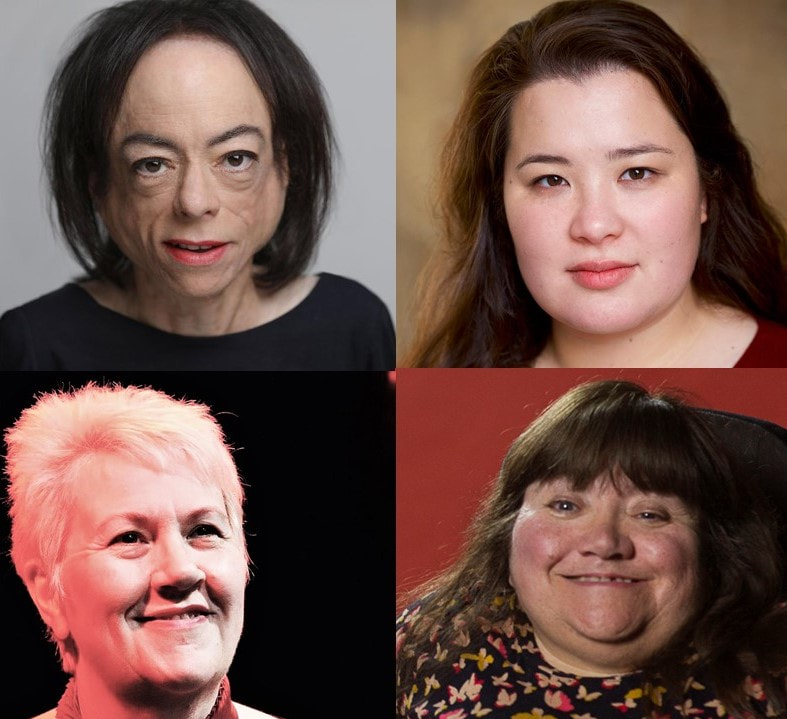 Image description - four disabled women pose in separate portraits. Top left is Liz Carr who is a white woman in her forties with a dark brown bob haircut and is wearing a black top. Top right is Bea Webster who is a woman of dual heritage, Thai and Scottish, with long brown hair and a red top. She is in her late twenties. Bottom right is Mandy Colleran, a white woman in her fifties with long hair and a black top with butterflies on it. Bottom left is Vici Wreford-Sinnott, a white woman in her fifties. She has blond spiky hair and has ared scarf round her neck. Funny Peculiar is the latest lockdown production from Little Cog as part of the Staging Our Futures programme. Written and directed by Vici Wreford-Sinnott, the piece also stars Liz Carr of Silent Witness fame, Mandy Colleran, a comedian and activist, and Bea Webster who is currently an associate of both the Royal Shakespeare Company and The Playwright's Studio of Scotland.
Vici said, "We are absolutely thrilled to be working with such an amazing cast to tell the stories of disabled women. It feels more important now than ever that we ensure we are visible". Vici is referring to the figures recently released showing that disabled women are 11.9 times more likely to die in the current pandemic than other people. Vici continued, "Terms like 'vulnerable' and 'underlying health conditions' have led to thinking that the deaths of certain groups of people are inevitable. Expected and accepted". Little Cog decided to challenge that belief and develop work that celebrated disabled women in their rich and complex glory. "We are so excited to be working with Liz, Mandy and Bea. Vici has spent time discussing disabled women's experiences with all cast members and is writing bespoke work for the actors." Liz Carr is known to millions for playing Clarissa Mullery in the BBC's Silent Witness for 8 years but Liz is many things. She is an actor, comedian and disability rights activist. Others will know her from the Disabled/Deaf women’s comedy group, Nasty Girls or the BBC Ouch! podcast with Mat Fraser or her stand up with Abnormally Funny People, her Criptease routines or her passionate opposition to legalising assisted suicide through both campaigning and her creation of the show, Assisted Suicide - The Musical. Liz said, “I’m thrilled to have this chance to give voice to and highlight the fears, dark humour and incredible resilience of Disabled women as together we fight for our very existence not just during this pandemic - but always." Just what is Funny Peculiar and when can you see it? Zsa Zsa, Raquelle, Blanche and Cuba are in quarantine – four disabled women locked down, locked in, shut up and shouted down. While the rest of the nation is in meltdown, it takes a lot to phase this quartet. The new terrain is worrying and frustrating but these women are prepared - perhaps they have waited for a moment like this their whole lives. In a sequence of four original, cross-cutting, witty and wise monologues, broadcasting from their own homes during quarantine, these women are myth-busters giving their all to expose the lie of vulnerability. "Writing and rehearsals are under way - this piece is particularly of this moment and we don't expect to see any of our broadcasters making work like this, although we'd love their support, so we just thought, okay then, let's make it ourselves and the response and interest has been phenomenal", says Vici. "There is a danger with a period of potentially prolonged isolation that we could disappear from view, and we were in unanimous agreement that none of us is prepared to let that happen. So here we are making glorious work together." Mandy Colleran has been involved in Disability Arts since the 1980s. She was a founder member of the comedy trio No Excuses which produced the legendary piece Know My Place, still available to view on youtube. Mandy was also a founder of North West Disability Arts Forum, later becoming it's director. She won a Lifetime Achievement Award from Dadafest in 2007. She was involved in Kaite O'Reilly's In Water I'm Weightless for National Theatre of Wales and has had a long career as a speaker, feminist and campaigner for disability rights. Bea Webster is a deaf actor who trained at the Royal Conservatoire of Scotland. She is an actor, drag artist, writer and speaker on Deaf equality. She is currently in rehearsals with the Royal Shakespeare Company for The Winter's Tale, and starred in Red Ladder's Mother Courage and Her Children, and Kaite O'Reilly's Peeling which toured in the UK last year. Bea is passionate about classical and contemporary texts in English and BSL, has contributed to BBC Social, has hosted several events, and has published a poem in both BSL and English titled Long Lost Lover, about her birthplace of Thailand. Vici is Artistic Director of Little Cog, writing and touring nationally a number of pieces of work including, Butterfly which was named Best One Person Play by the British Theatre Guide, Another England, Lighthouse and her recent commissions The Wrong Woman Discussions and Siege for ARC Stockton and Home Manchester can still be seen online as part of the Homemaker's commissions. She is a lifelong feminist and activist, regularly speaking and campaigning on disability rights matters and the role of culture and the arts in equality. She is a founding member of both Disconsortia and We Shall Not Be Removed. We can't wait to tell you more about the production - please watch out for regular updates and support us by sharing information about it. Funny Peculiar is a Staging Our Futures Commission supported by Arts Council England, ARC Stockton and will be shared as an internet broadcast at the end of August. |
|
Little Cog ARC Stockton 60 Dovecot Street Stockton-On-Tees TS18 1LL E: [email protected] Copyright Little Cog 2024 Copyright - all work is owned and copyrighted to the artists identified as the creators of artwork on this site. All rights reserved. None of the work may be used without the artists' written permissions.
|
Search Box Here
Proudly powered by Weebly
|

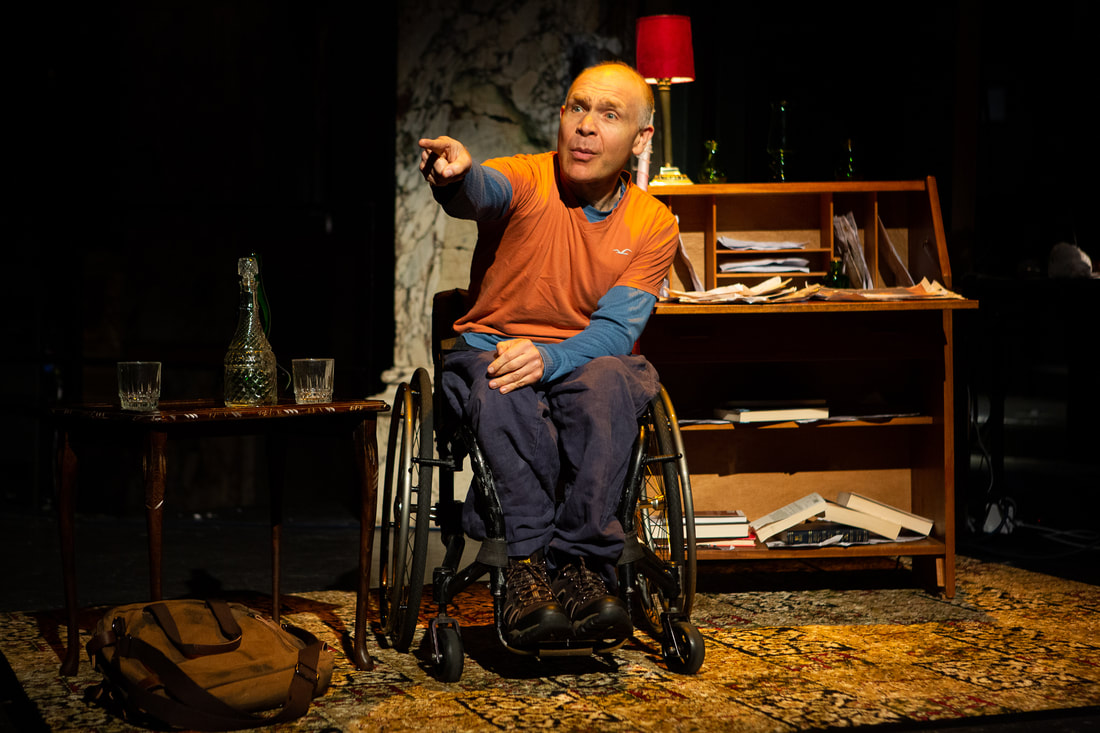
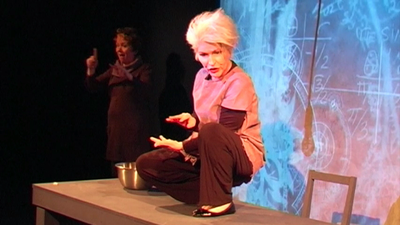

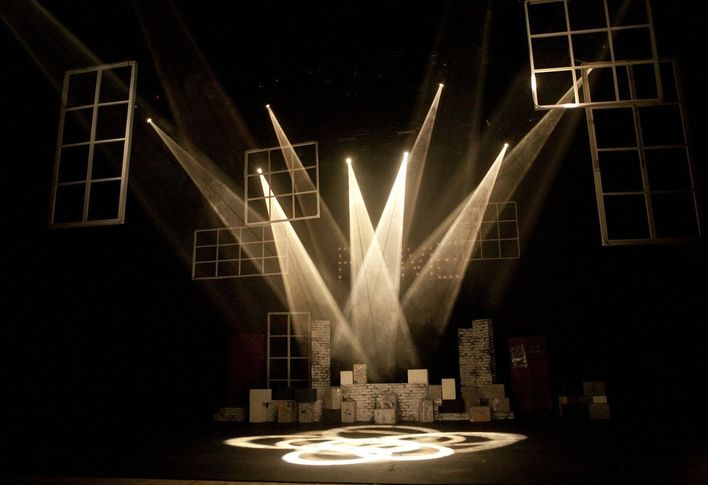
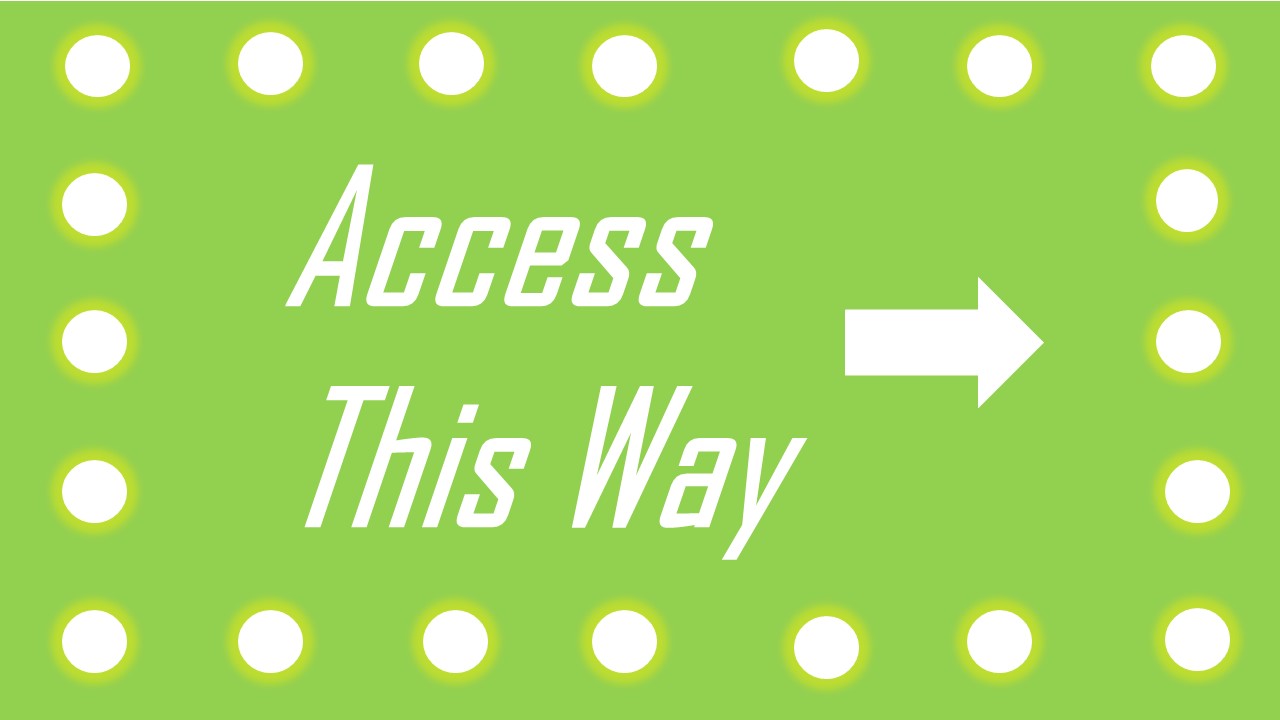
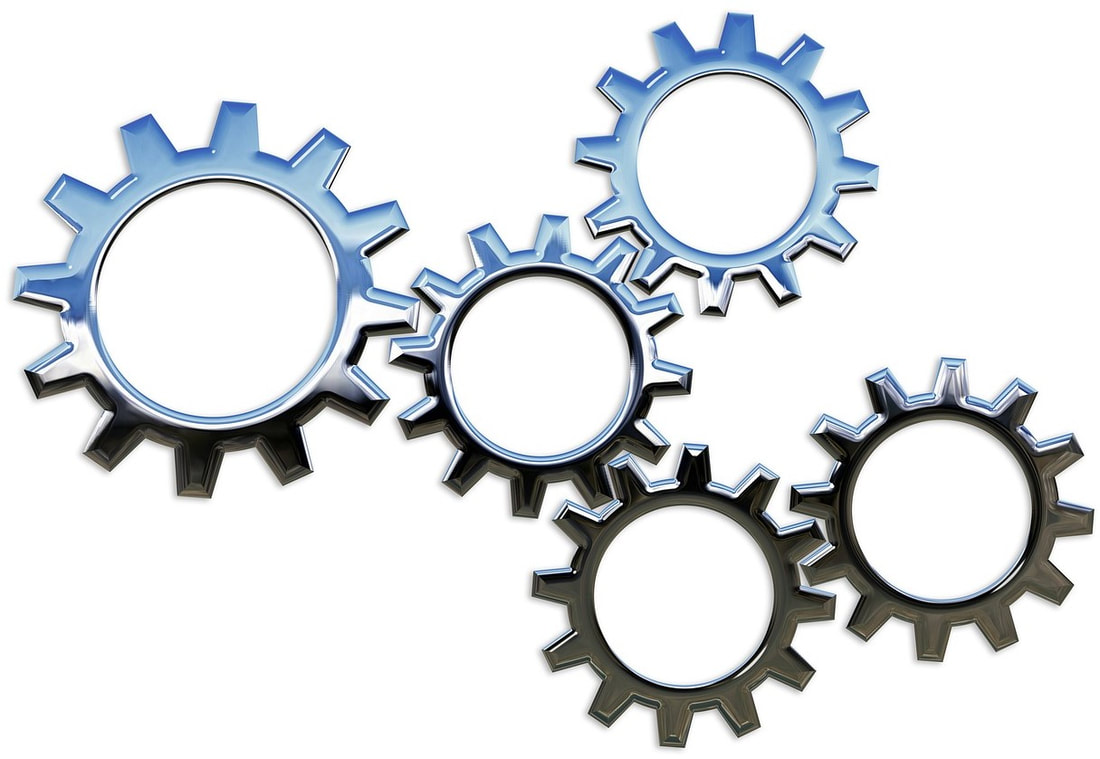
 RSS Feed
RSS Feed

